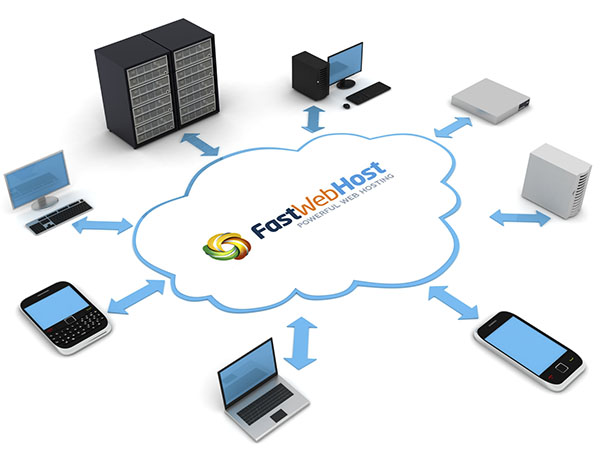We’re all familiar with the concept of websites. But how does a site actually get online? Where is it stored? And how is it delivered to your browser when you type in the address? All of this is part of the hosting process, let’s take a look at how it works in a bit more detail.
At its simplest hosting companies provide servers on which customer sites are stored and from which they’re made available to the Internet. Since there are around 180 million websites online you can see that hosting is big business.
Basic Hosting
Hosting a simple, personal website is a straightforward process. The site is uploaded to the server via a web interface or an FTP (File Transfer Protocol) program and is then made available to the world. Personal hosting is sometimes provided free as part of an ISP package or via companies that offer advertising supported sites. These options typically provide a user control panel to allow easy management of the site.
Hosting for business sites usually has a cost attached, this varies depending on the cost and complexity of the site. Companies like pixelutopia.co.uk offer a range of different packages. Complex sites for things like online stores may require database support. Other sites may need the ability to run scripts to enable things like forums or to allow users to add content.

Key Factors
When choosing a company to provide web hosting in Leicester or anywhere else, there are a number of factors to consider. The key ones are how much space you need, any software you need to run, speed and reliability.
For most individuals and smaller businesses shared hosting will be sufficient. This means that your site shares server space with lots of others. For smaller sites that don’t get large volumes of traffic this is a good, cost effective solution.
Larger businesses and those whose sites are expected to get a lot of traffic may want to opt for a dedicated server. This means that you rent a server just for your own use though it’s still located on the hosting company’s premises to take advantage of their infrastructure and fast connections to the Internet. Dedicated servers may be managed by the hosting company or in some cases businesses will have the option of managing them themselves allowing them to install their own software.
As cloud computing moves beyond the realms of simple data storage, a more recent development is cloud hosting, this allows additional flexibility as it can be scaled up when the site grows. It also offers more resilience as the hardware is distributed so a single piece of equipment failing won’t take the site down. On the other hand the distribution of data makes this option less suitable for businesses with data security and compliance issues.
Websites are almost essential for any business in the modern world. Choosing the right hosting package ensure that you get the best from your investment in a site and deliver the right online service for your customers.



